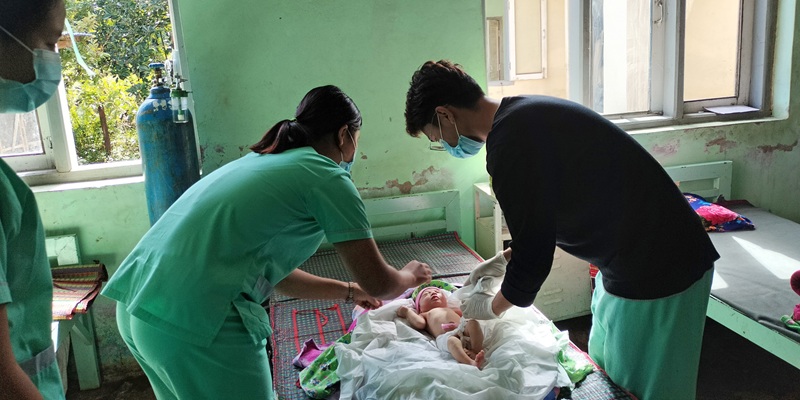News
International law must be used to protect nursing staff in conflict zones
An RCN report highlights increasing incidents of violence against staff and health facilities, and accounts from nursing staff working in war zones

Connect with us:
The RCN says urgent action is needed to ensure health care staff working in conflict zones, including nursing staff, are protected and established international law is upheld to protect health workers.
We’re calling on governments around the world to work with international partners to demand an end to the deliberate targeting of health workers and health systems.
Nursing staff play a vital and often under-recognised role in conflict zones, acting as frontline responders amid violence, instability, and humanitarian emergencies. Yet, nursing staff are killed frequently, and health facilities are destroyed in conflict. This is a direct violation of international humanitarian law.
Our new report, Care amongst the chaos: the voices of nurses working in conflict, which has been produced by the RCN International Nursing Academy, outlines the rising incidence of violence against staff and health facilities.
There are accounts from nursing staff working in Gaza, Myanmar, Lebanon and Afghanistan. The RCN says international action is needed now.
There are several RCN recommendations within the report. We’re calling for governments to reaffirm the principle of neutrality of health workers and call for the release of health workers who have been unlawfully detained, too. Investigations and prosecutions by the International Criminal Court wherever health care workers are targeted must take place.
RCN General Secretary and Chief Executive Professor Nicola Ranger said: “No nurse should ever face violence or obstruction simply for doing their job. Any killing of any member of nursing staff, in any context or for any reason, is entirely abhorrent.
“Attacks on health systems are not only devastating to the individuals directly affected, but they also leave deep and lasting scars on entire communities. The consequences ripple far beyond the immediate violence, placing immense strain on health systems that must respond to widespread civilian injuries and escalating public health needs.”
We’re also calling on all governments to facilitate safe corridors for medical delivery, vaccinations, and patient referral.
We say health care infrastructure must be strengthened through sufficient investment in health systems. We’re calling on the Westminster government to reverse cuts to Official Development Assistance (ODA) to support rebuilding of vulnerable health systems and to bring the UK’s ODA contribution in line with the United Nations target of 0.7% of gross national income.
Nicola added: “The Westminster government must do everything in its power to support the upholding of international law, including supporting the ICC to investigate and prosecute those responsible. It must also restore the ODA’s budget to support the rebuilding of devastated health systems across the globe.”
Mental health support for nursing staff is essential too. We believe the voice of nursing staff must be recognised, amplified and acted upon.
The data from Insecurity Insight shows that health worker killings have risen significantly since 2023, occurring primarily in the Lebanon, Myanmar, the occupied Palestinian territory, Sudan, and Ukraine.
The number of health worker killings in conflict rose from 175 in 2016 to almost 1,000 in 2024 – a five-fold increase in under a decade. In the first half of 2025, more than 1,200 attacks on health workers were recorded also. Due to delayed reporting, this number is expected to climb substantially throughout the next 18 months.
We’re expanding our work with the global nursing community, and through the RCN International Nursing Academy, we’re taking an increasingly active role in supporting nursing staff in conflict zones.
Marcus Wootton, Associate Director of the RCN International Nursing Academy, said: “This report highlights the extraordinary challenges nursing staff face globally. By publishing this, the RCN is using its voice and influence to advocate for change.
"Modern nursing was forged in war and crisis, and those pressures continue today. Through the International Nursing Academy, we bring together our members’ unrivalled expertise to work in partnership with nurses and organisations in conflict zones and low-resource settings. We're all global nurses, and the RCN has a vital role to play.”











